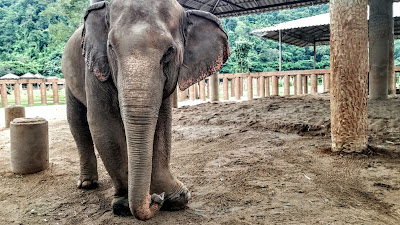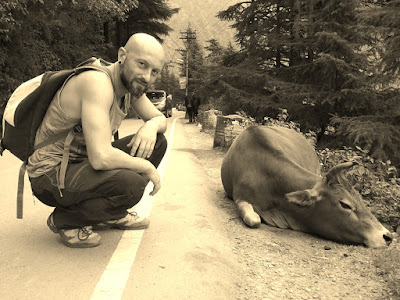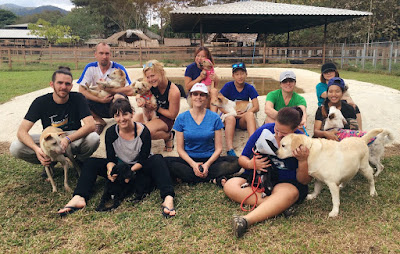Respect! 10 tips to travel without harming animals
 |
| In the elephant rescue centre in Thailand they are helped to live with dignity. |
I'll tell you a secret about animals - only if you tell everyone! Travelling without harming them is possible. After organising hundreds of solidarity trips, from Tumaini we share with you some key points to travel the world without affecting our fellow planetary partners
Is there a magic recipe for 100% animal-friendly travel? No, but the Responsible Tourism gives us some tips on how to have the least negative impact on them. The secret includes: informing ourselves about the ecosystems we are going to visit, following the advice of local specialists and applying our critical thinking to protect animal rights. The idea is to always keep in mind that they are beings who long for the same thing we do: to avoid suffering and to be happy!
 |
| Jou next to a cow in India, during her solidarity trip. |
Tips for animal-friendly travel
2. Don't take pictures of them or be photographed with them.. You will prevent them from being captured and exploited for life. They are not objects.
3. Don't buy souvenirs made from animal parts. Do not take or buy any live animal - it may be a crime! Moreover, it encourages their capture, torture and death. Some species have become extinct as a result.
4. Don't ride on the back of animals such as horses, donkeys, camels or elephants, or in carts pulled by them. These are cruel practices that cause suffering or even death.
5. Avoid attending festivals with animalseven if they are traditional. Bulls, horses, pigs, dogs, whales suffer damage as a result.
6. Don't go to circusesThey do not support the business of juggling or dancing with animals (e.g. dancing bears). They teach them through mistreatment and cruel punishment.
7. Don't visit dolphinariums or wildlife exhibition centres.The Commission has also proposed a new proposal for a new Directive on the protection of exotic animals in captivity, as they promote the captive life of healthy exotic animals.
8. Beware of zoos. Not all of them do educational work, rescue and preservation of biodiversity. Before attending, be well informed: are the facilities suitable for each species, are there shows, does the zoo contribute economically to the environmental conservation of the countries of origin, does it offer enough information?
Many zoos are becoming rescue centres and sanctuaries for animals that have been injured or recovered from exploitation. The aim of these centres is to give them a more dignified life and to educate visitors about how they should be respected.
9. Report any activity that you believe does not respect animals. to local authorities or animal welfare NGOs (local or international).
| Octavio in the wildlife rescue centre Bolivia. |
10. In animal sighting in their natural habitat:
- Don't get too close to the animals to avoid scaring them and interfering with their natural behaviour. Never go near breeding areas (nests, burrows, dens, dens...), as this would endanger their lives.
- Follow the instructions of the professional guidesbut:
- Never give human food to animals, nor eat in front of them.
- Don't litter!
- Don't touch them.
- Our illnesses can affect them.
- Ask your guide to move away if the animals show rejection, or are frightened,
- Don't be fooled by some of their gestures. For example, for many animals, opening their mouths is a threatening gesture, as they show their teeth. They are not smiling. You can see this in our Bolivia and Thailand.
- Lights or camera flashIn addition, sudden movements, shouting or loud noises can harm or provoke aggression in animals.
One last piece of advice! Whenever you decide not to participate in an activity where animals are not respected, explain your decision to the people in charge! They will know that their welfare matters to you and they will see that they stand to lose money if they continue to exploit them. No demand means no cruel activities.
 |
| Volunteers at a dog rescue project in Thailand |
More info
- In WorldAnimalNet you will find a list of NGOs from around the world working for animal rights.
- In the FADDA website there is national or international information and you can report abuses.
- In Responsible tourism you can find out more about how to travel in an animal-friendly way.
- Visit the InfoZoos website before organising your visit.
| One of the NGO's capuchin monkeys from Bolivia |



